Malcolm Prior and Jenny KumahRural affairs team
 Andy Alcroft/BBC
Andy Alcroft/BBCFor Emily Hough, nature was too often simply something “out there”, a world apart from her, a view…
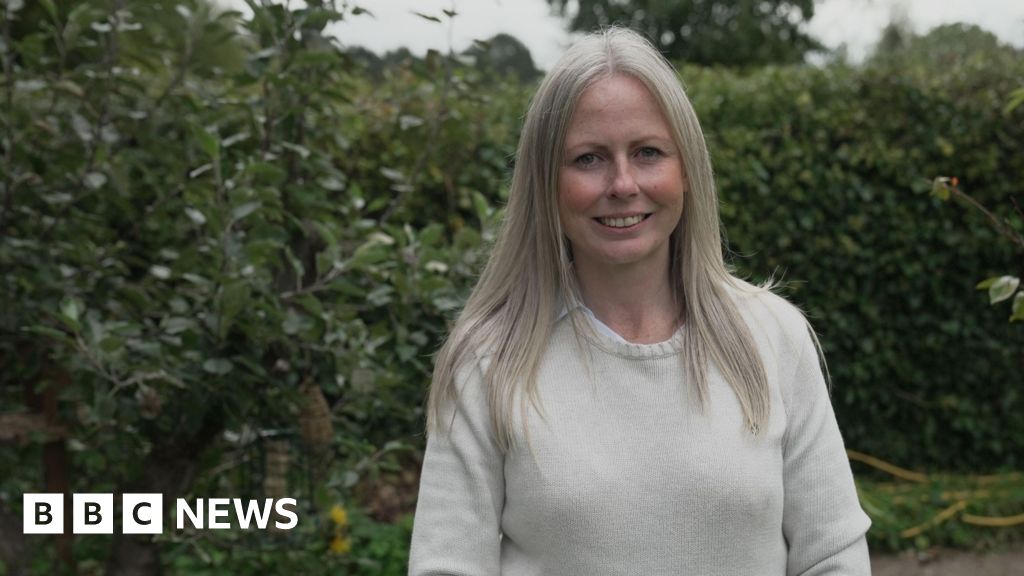
Malcolm Prior and Jenny KumahRural affairs team
 Andy Alcroft/BBC
Andy Alcroft/BBCFor Emily Hough, nature was too often simply something “out there”, a world apart from her, a view…

“A pressured world” could be one of the reasons a mental health helpline received more than 2,000 extra calls last year, an expert said.
Surrey and Borders Partnership NHS Foundation Trust said its helpline received 34,350 calls between January…

Ed JamesBBC Radio WM and
Tanya GuptaWest Midlands
 Getty Images
Getty ImagesEd Sheeran’s personal trainer has told how the star used the machine-based fitness system Reformer Pilates to boost his health on…

Sean CoughlanRoyal correspondent
 Reuters
ReutersThe Prince of Wales was visibly moved as he heard first hand about the devastating impact of suicide,…
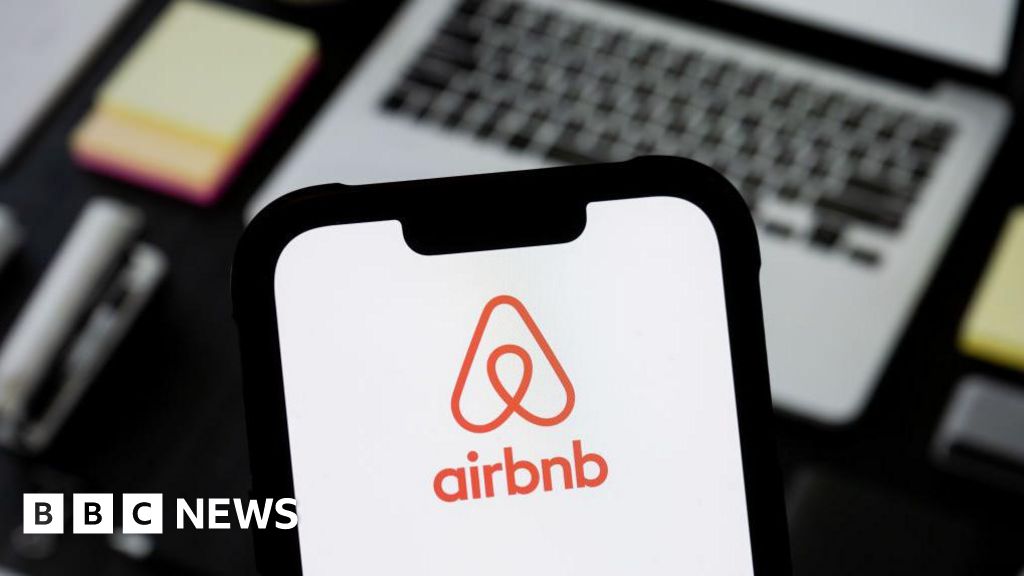
Alison BenjaminBBC Verify and
Guy LynnBBC London Investigations
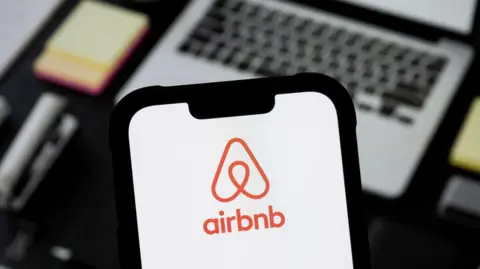 Getty Images
Getty ImagesMore than 1,000 Airbnb listings have been duplicated by landlords attempting to dodge short-term letting limits in London, BBC research suggests.
In the capital, homes can be let – often to tourists – for up to 90 nights a year without planning permission, a rule meant to protect London’s housing supply.
But many landlords are creating multiple listings for the same property, switching to a new one once the limit is reached in order to illegally keep renting the property for short-term lets all year.
One local council said it was creating a “mockery” of the law but Airbnb said it acted on reports from local authorities when hosts evaded rules.
London – one of Airbnb’s largest markets in the world – is the only area in the UK which restricts lets to tourists for a maximum of 90 days.
The policy is designed to enable people to earn a bit of extra money from their homes when not in use, while protecting rental housing supply for people like Ciaron Tobin.

The 22-year-old is preparing to move to London to begin a law degree while working part-time, but has been struggling to find an affordable home near his workplace to share with friends.
“Properties are simply too expensive for what I can earn in London, especially given where I need to commute,” he said.
“Prices are now outside of what I can afford. With Airbnb, supply is decreasing and the prices are rising.”
Airbnb disputes its impact on rental prices, and many landlords have criticised the 90-day legislation, saying it imposes too many controls.
To get a snapshot of the current situation, BBC Verify developed photo-matching software which analysed images from 37,000 adverts for “entire” homes on Airbnb in London on a single day.
The investigation found about 1,300 listings had reused identical images – such as the same furniture, rooms and decor – from other supposedly unique listings.
The software flagged a larger number – about 1,700 – but after manually reviewing a sample we removed a quarter that were likely to be legitimately reusing photos, such as stock images of London, or multiple flats in one building.
The findings suggest hosts are widely using a known method for dodging the 90-day rule, allowing them to extend short-term rentals beyond what the law permits by creating duplicate listings which have not been picked up by Airbnb.
A previous BBC investigation found some property firms were touting tactics such as changing addresses or re-photographing the same house.
Airbnb said it used software featuring an inbuilt “counter” to stop anyone from renting out short-term lets for longer than 90 days, and that duplicate listings of the same property to evade enforcement were in breach of its terms.
The counter begins from the moment a property is listed.

“Duplicate listings make it much harder for our teams to track down those who are breaking the rules, making such misery for local residents and taking homes out of the housing market,” said Adam Hug, leader at Labour-controlled Westminster City Council.
He said the situation “made a mockery” of London’s short-stay restrictions.
The council is currently investigating about 2,700 properties for alleged breaches of the 90-day limit.
The main way councils tackle landlords who break the rules is by issuing an enforcement notice. Ignoring one is a criminal offence and can lead to prosecution and an unlimited fine.
A spokesperson for the Greater London Authority said the BBC’s findings revealed how “illegal short-term lets pile pressure on supply at a time when affordable housing is desperately needed”.

The BBC shared its methods and findings with Airbnb and offered an on-camera interview for the company to respond which was declined.
Airbnb said it was “disappointed” the BBC had not shared its evidence in raw data form so it “could look into the claimed findings”.
It said it was the only platform that automatically capped listings in Greater London at 90 nights unless hosts had permission to exceed the limit and that it acted on reports from local authorities if rules were evaded.
It argued that short-term lets made up only a tiny fraction of London’s housing stock, had little impact on overall affordability, and emphasised its contribution to tourism, claiming it supported 16,800 jobs and added £1.5bn to the capital’s economy in 2023.
There are several other short-term letting platforms, but Airbnb is by far the largest.
The Department for Culture, Media and Sport said it was developing a registration scheme for short-term lets in England.
The Short Term Accommodation Association said it wanted “clear fair, rules”, adding that a registration scheme would “give the sector the tools to work with councils to deal quickly with bad practice such as duplicate listings”.
Airbnb told the BBC it was working with the government on implementing the scheme.
Elsewhere in the UK, Scotland requires a licence to operate, with similar plans under way in Wales.
In Northern Ireland, anyone offering tourist accommodation must already be certified by Tourism NI.
Globally, cities such as New York and Santa Monica in California tightly restrict such lettings through licensing and have a requirement for hosts to be on-site, while Barcelona is planning a total ban on short-term rentals from 2028.
Additional reporting by Kris Bramwell & Stephen Menon
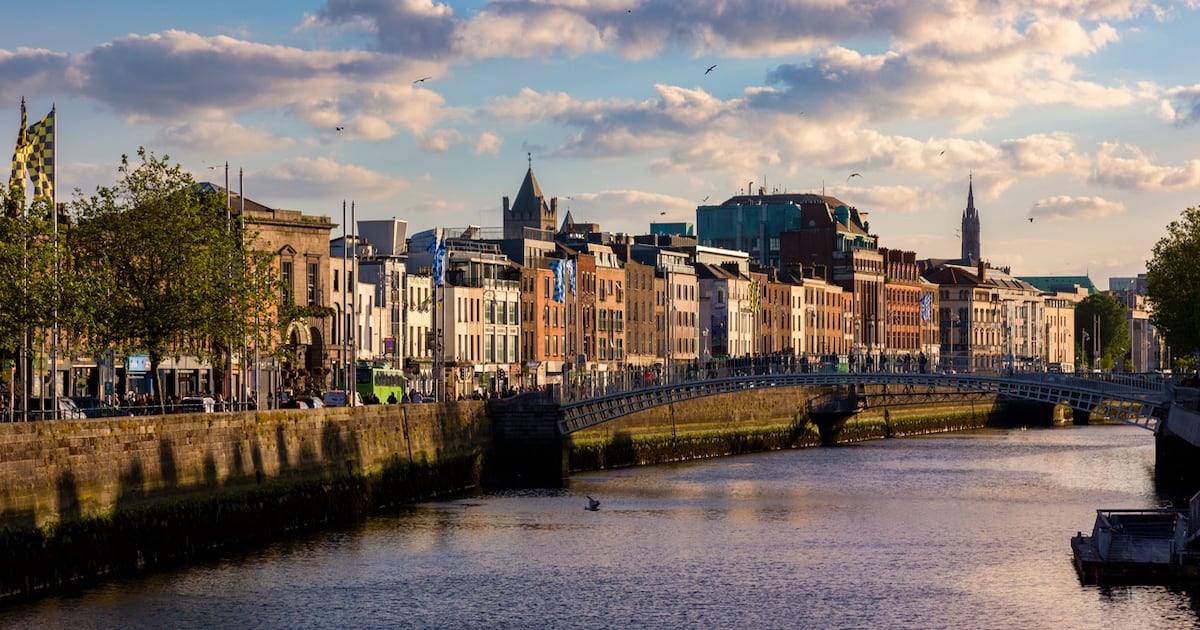
I’ve always loved living in house-shares. Maybe it’s having grown up as the fourth of five kids in a small town in Cork, but I could never understand the appeal of a lonely and cripplingly expensive Dublin bedsit with just the four walls for…

Androgenetic alopecia, also known as male pattern baldness or female pattern hair loss, is one of the most widespread causes of hair thinning in both men and women. While topical minoxidil is an approved therapy, its limited ability to dissolve…
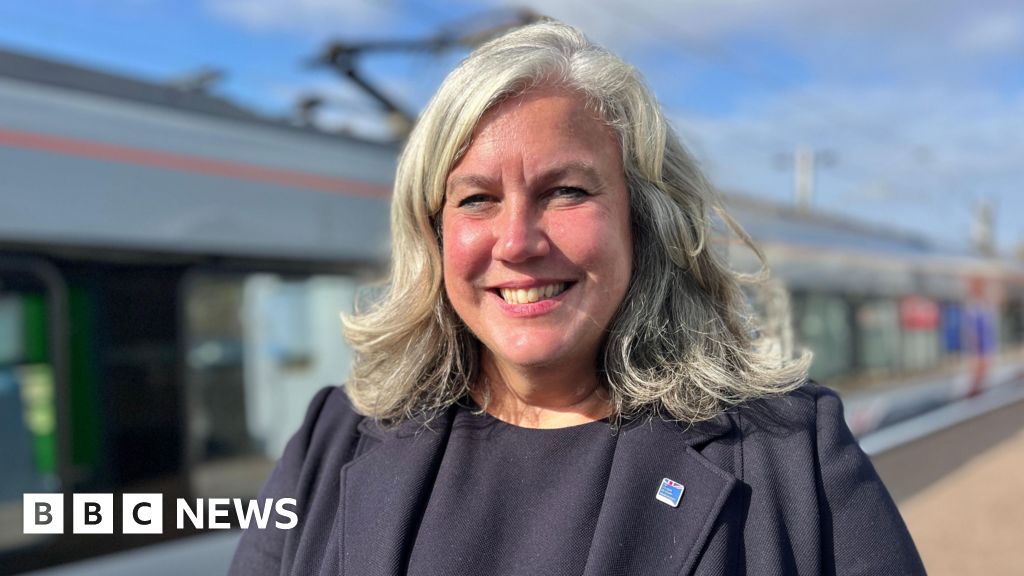
Andrew SinclairEast of England political editor and
Ben SchofieldEast of England political correspondent
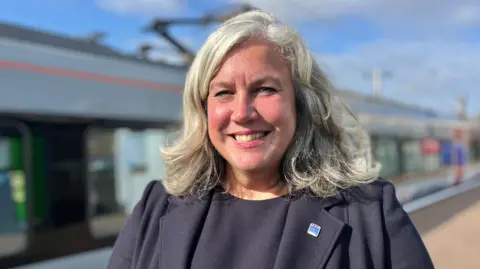 Martin Giles/BBC
Martin Giles/BBCThe transport secretary has vowed to “move heaven and earth” to deliver “value for money on the railways”.
But Heidi Alexander stopped short of promising cheaper fares for train passengers.
She was speaking ahead of the nationalisation of the East of England rail operator, Greater Anglia, on Sunday.
The company, which is among the UK’s best performing train firms, said passengers should experience the same levels of service.
Alexander, on a visit to Norwich station, said she wanted to “embed high-performing, reliable railways that people can depend on”.
There was also a “baffling array of different ticket types”, which she hoped nationalisation would help “simplify”.
“I do think we need to simplify fares, but I can’t make a promise that we can bring fares down in the short term because we’ve got to run a financially sustainable railway,” she said.
 Martin Giles/BBC
Martin Giles/BBCLast week Greater Anglia, which handled 81.8m passenger journeys in 2024/25, was named Rail Operator of the Year at the National Transport Awards.
Almost 94% of its trains arrived within three minutes of their scheduled time last year.
The government said it would be “used as a benchmark for other operators” and would “share best practice and drive up standards” across the rail network.
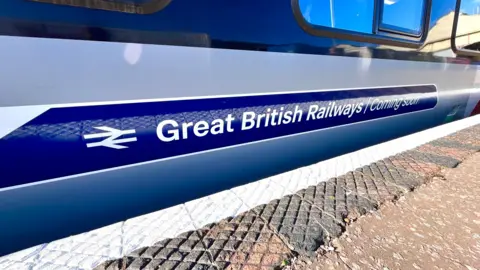 Martin Giles/BBC
Martin Giles/BBCGreater Anglia will eventually become part of Great British Railways, which the government plans to set up in the coming years.
The company runs trains from Cambridge, Ipswich, Norwich and Colchester into London, as well as the Stansted Express and services across the East of England.
The transport secretary said there was a “gap of about £2bn” between what the government “ploughs” into the railways and fare income from passengers.
“In the longer term, I would like to be able to deliver a more affordable railway but I’ve got to get the balance right between what the taxpayer is putting in to subsidise the railway – which is billions of pounds at the moment – and what passengers are paying,” she added.
She said the government would “move heaven and earth to make sure that people get value for money on the railways because I do recognise that prices can be high”.
But, she went on: “People need to know that they get a service that they can rely upon and that it’s going to be a high quality service.”
The Department for Transport (DfT) has said that nationalising all the current rail franchises would save an estimated £150m a year in fees paid to private sector operators.
 Owen Ward/BBC
Owen Ward/BBCAn integrated leadership team will bring together Network Rail Anglia, which is responsible for rail infrastructure like tracks and signals, with the operators Greater Anglia and c2c, which runs services in south Essex and was nationalised in July.
The DfT said that team would “increase collaboration and accountability, delivering improvements for passengers and freight users”.
But Jerome Mayhew, the Conservative MP for Broadland and Fakenham in Norfolk, told Sunday’s BBC Politics East that he was “really worried” about rail nationalisation and that “Labour has got the wrong analysis” and were “giving the wrong solution to the problems”.
Greater Anglia, he added, was a “really well-run private business”, which had invested in new trains.
The first nationalised Greater Anglia service on Sunday will be the 16:10 BST Stansted Express from Liverpool Street.

Wang Y, Liu Z, Chen T. Vaginal microbiota: potential targets for vulvovaginal candidiasis infection. Heliyon. 2024;10(5):e27239–51. https://doi.org/10.1016/j.heliyon.2024.e27239.
…

Berlin, Germany, October 9, 2025 — As delegates from around the world and across the private sector and civil society gather for the 2025 World Health Summit, the Reaching Every Child in Humanitarian settings (REACH) consortium has…